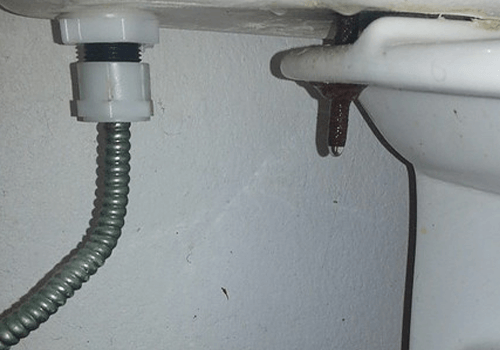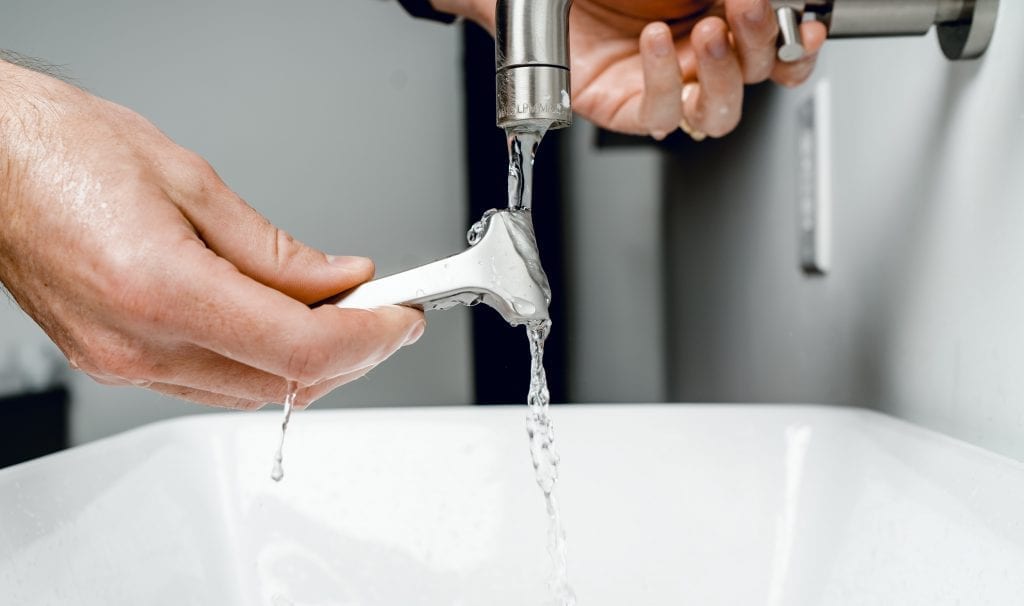Vital Winterizing Tips: How to Keep Your Pipes Safe from Bursting in Frigid Temperatures
Vital Winterizing Tips: How to Keep Your Pipes Safe from Bursting in Frigid Temperatures
Blog Article
Just about every person has their personal rationale when it comes to How to stop pipes from freezing during the winter.

All home owners that live in warm environments should do their ideal to winterize their pipes. It is something you need to do throughout autumn prior to deep winter season absolutely begins. Failure to do so can spell catastrophe like frozen, fractured, or burst pipes. Here are some handy winterizing hacks to keep your plumbing system safeguarded even if the weather condition outside is frightful.
Try a Hair Dryer or Heat Gun
When your pipelines are virtually freezing, your reliable hair clothes dryer or warmth gun is a godsend. If the hot towels do not aid remove any working out ice in your pipes, bowling warm air straight right into them might aid. You might end up destructive your pipes while attempting to melt the ice.
Open Up Cupboard Doors Hiding Plumbing
When it's cold outside, it would certainly be handy to open closet doors that are concealing your pipelines. Doing this small method can keep your pipelines warm and also restrict the potentially hazardous end results of freezing temperature levels.
Take Time to Wrap Exposed Water Lines
One easy as well as clever hack to heat up frigid pipes is to wrap them with warm towels. You can cover them initially with towels. After safeguarding them in position, you can put boiling water on the towels. Do it gradually to allow the towels absorb the liquid. You can likewise utilize pre-soaked towels in hot water, just don't forget to wear protective gloves to safeguard your hands from the warmth.
Turn On the Faucets
When the temperature decreases as well as it appears as if the cold temperature level will last, it will certainly help to transform on your water both indoors and also outdoors. This will keep the water flowing via your plumbing systems. You'll finish up wasting gallons of water this means.
When Pipes are Frozen, close Off Water
If you see that your pipelines are entirely frozen or almost nearing that phase, transform off the primary water valve immediately. You will typically find this in your cellar or laundry room near the heating unit or the front wall surface closest to the street. Transform it off as soon as possible to avoid further damages.
With even more water, even more ice will pile up, which will ultimately lead to rupture pipes. If you are unsure about the state of your pipelines this winter months, it is best to call a specialist plumber for an assessment.
All house owners who live in temperate environments need to do their finest to winterize their pipelines. Failing to do so can lead to disaster like frozen, split, or ruptured pipes. If the warm towels do not assist displace any type of resolving ice in your pipes, bowling warm air directly right into them might assist. Transform off the primary water valve instantly if you see that your pipes are entirely icy or practically nearing that phase. With more water, even more ice will certainly load up, which will eventually lead to rupture pipelines.
PREVENT YOUR PIPES FROM FREEZING THIS WINTER
A Leading Cause of Property Damage
When the weather is taking a deep nose dive into the cold dreary days, the risk of your pipes freezing and potentially bursting skyrockets. Unfortunately, during these cold dreary months, burst pipes are the most common denominator for property damage. The pipes that are most at the risk are those that are in areas where it is most cold in your home. For instance, pipes located in interior places such as basements, attics, and your garage. Unfortunately, that doesn’t mean that the pipes running through your cabinets or exterior walls can’t freeze. Good news, however, is that you can do things to help prevent pipes from freezing.
How to Prevent Pipes From Freezing
Once the temperature starts to drop during the winter, you should be taking the proper measures needed to ensure that your pipes stay warm and that there is circulation of water through them. Some steps that experts may recommend could go against your better judgement when it comes to saving water and heat. However, it would go without saying that when expenses are compared, damaged pipes could put a bigger dent in your wallet than a water bill.
What Can I Do?
Keep your garage door closed. This is very important, especially if you have water supply lines running through your garage. Open your kitchen and bathroom cabinets to allow warm air to circulate through them. Allow air circulation throughout your home. Keeping the interior doors open will once again allow the warm air to circulate inside your home. Ensure your thermostat is running the same temperature throughout the night and day. If you plan to be away from home during the cold months, set your temperature no lower than 55° F. This should provide enough heat to keep the pipes warm and prevent any remaining water inside the pipes from freezing. For more of a long-term solution, add insulation to attics, basement, and other crawl spaces around your home. By allowing your faucet to drip, it will alleviate pressure in the system. This is important because the pressure that is created between the blockage and the faucet can potentially cause the pipes to burst. Allowing the faucet to drip will prevent the pressure from building up, therefore keeping the pipes from bursting. Seal any cracks, openings, and crawl spaces around your home to prevent cold air from coming inside. This keeps your pipes-not to mention your home-warmer and less susceptible to issues caused by freezing temperatures. For the pipes in your home that are easily accessible, applying electrical tape to them might prevent them from freezing over. This is a quick fix, as you can apply the tape directly to the pipe. There are two options for heating tapes. One turns on and off by itself when it senses heat is needed. The other type of heating tape needs to be applied when heat is needed and removed when not necessary. If you have exposed pipes in your home, you can check this website to take a look at a few options that would be available at a shop near you.

I hope you enjoyed our piece on How to stop pipes from freezing during the winter. Thanks so much for taking a few minutes to browse our piece of content. Enjoyed reading our blog? Please share it. Let others discover it. Thanks so much for your time spent reading it.
Call Today Report this page